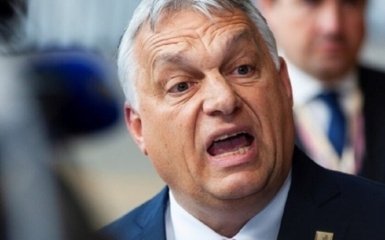Already in the summer of 2024, Hungary should preside over the Council of the European Union. Meanwhile, the EU is considering an option to deprive Hungary of its influence.
How can the EU deprive Hungary of the right to vote
Oleksandr Krayev, a "Ukrainian Prism" Foreign Policy Council expert, told 24 Kanal that the European Union has a key and legitimate argument to stop Hungary — the 2009 Lisbon Agreement.
Article 7 of this treaty states that any country that opposes the familiar politicians of the European Union, primarily on common political issues, foreign relations, and defence, can be left without the right to vote, attend meetings, and participate in making certain decisions. This is even though she is currently presiding, has a status, her representatives have positions there, etc.
If a country prevents the EU from having a full-fledged foreign policy, if this country, in fact, sabotages the political and diplomatic processes in the European Union, then it should remain without the right to vote. It is entirely possible to stop Hungary by legal means, which are prescribed in the founding documents of the EU, Oleksandr Krayev emphasized.
Hungary depends on the EU.
Hungary is a beneficiary country; it receives more resources and funds from the European Union than it gives to the EU. Those ten billion, which were once frozen for Hungary because it was not ready to engage in adequate cooperation regarding the Ukraine issue, can still be frozen at any moment.
First, not all of these funds reached Hungary.
Secondly, these are not all the funds intended for this year's grant-holding countries.
Thirdly, Hungary is completely dependent on this money. More importantly, Orbán's voters depend on this money.
First of all, these are finances and resources that will go to the development of rural communities. These are EU agricultural funds. These are local development funds. That is, these are precisely the funds for those communities that vote for Orbán and fully support his policies, — noted the expert.
And now their voice must "resonate" to them. They should feel that the European Union is not ready to cooperate with them further with this position of their elected representative.
Orban's prospects
According to Oleksandr Krayev, Orban portrayed himself as the only negotiator with Trump after he visited the USA. It seems that all of Europe is afraid of Trump's arrival. They are preparing new military budgets and a new foreign policy, trying to maneuver in potentially chaotic conditions. They are trying to resist the fact that Trump will become president.
Orban is "sculpting" a second Erdoğan out of himself, that is, making himself an irreplaceable moderator in communication with a very problematic politician. Erdogan is such a moderator and diplomat in dealing with Putin for the West. And Orban wants to make himself such a moderator in communication with Trump. Therefore, if he succeeds, then, in fact, the main channels of communication with Washington will go through him, Kraev said.
But whether he will succeed in this is still a huge question. Even though Trump's position changed, he remained as unpredictable as he was, and his position in Europe could change many times.
Orban is personally building the future of a kind of independent quasi-European politician who can communicate with Trump, take money from Putin, and be in alliance with Erdogan. And to remain in the EU and NATO, but at the same time hate these two organizations, — said the expert.
His isolationism, flirting with the theme of the European Union's and his policy's incomparability, quite quickly breaks against the wall of economic policy and is fastened with all the regulatory acts that the EU possesses.
The European Union of 2024 is not the European Union of the mid-2010s. Now, he is more determined to respond to such provocations, stop such populists, and take a more proactive approach.




